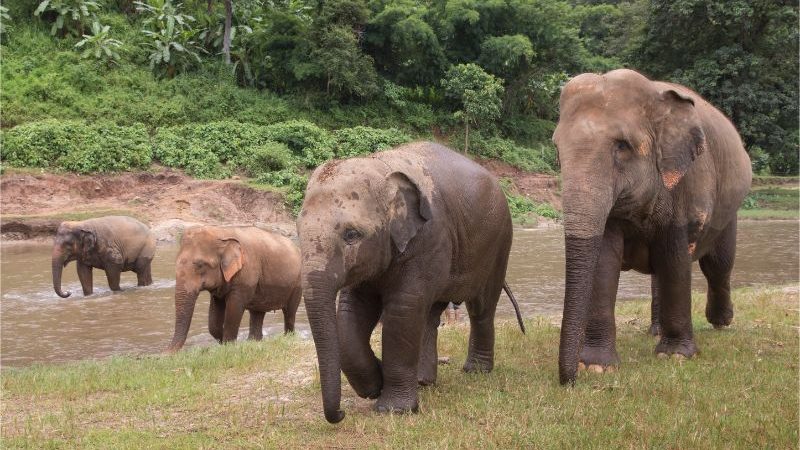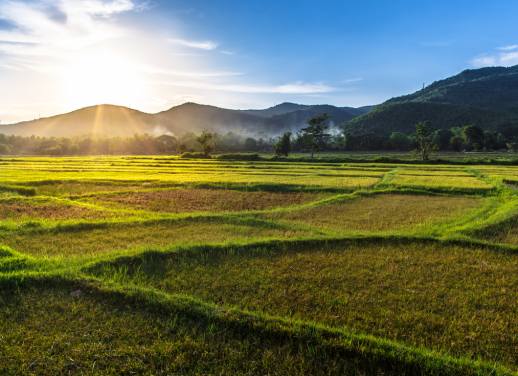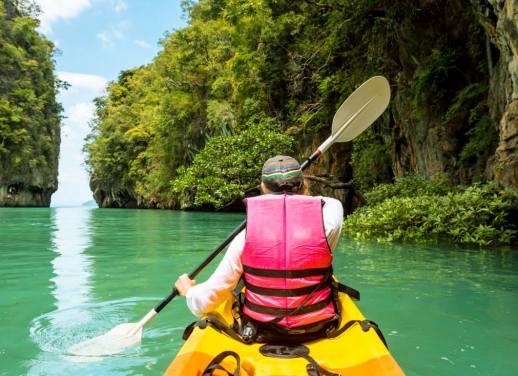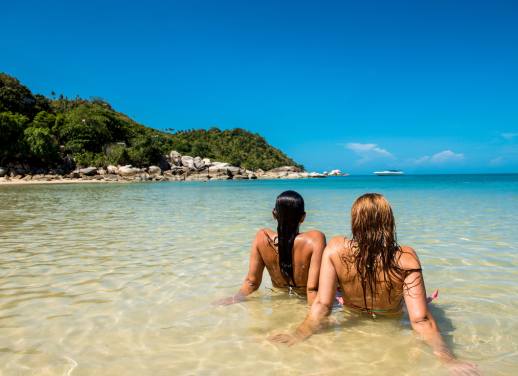It’s a year since I spent a day at Elephant Nature Park (ENP) as part of Intrepid’s Chiang Mai and Elephants itinerary, yet the impact of those few hours is etched deep inside me. Here’s why.
Looking into the eyes of Jokia, is a window into the good, bad and ugly side of humanity.
In Thai, Jokia means ‘eye from heaven’, but sadly behind the light in her eyes, there’s darkness. Her sight stolen by the hands of her owners.
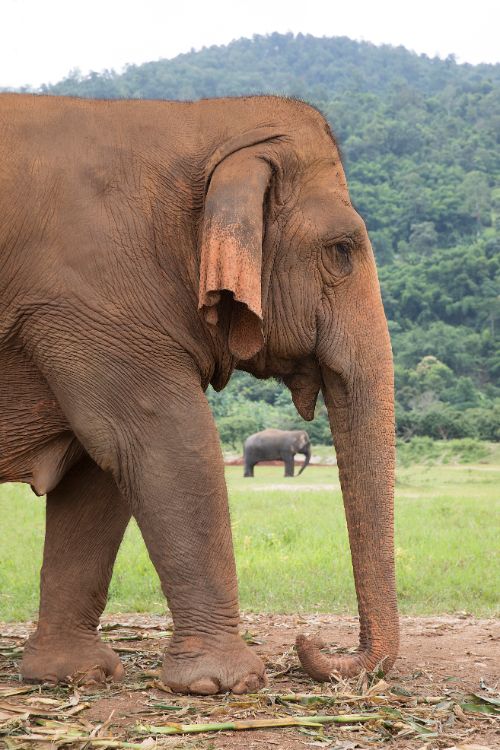
Jokia.
“Jokia was an illegal logging elephant”, our guide Atichart Chatpistchaikul (known as Tong) explained. “One day she miscarried while hauling logs and wasn’t allowed to stop to see if her calf was alive or dead. When she refused to work, the mahout sling-shotted a rock into her eye.” After being sold to another logger, Jokia suffered from depression and still wouldn’t work. “So her new owner fired an arrow into her other eye.”
RELATED: THIS IS WHY WE NO LONGER RIDE ELEPHANTS
Like Jokia, each of the 70 elephants living at Elephant Nature Park in Chiang Mai, has a heart-breaking tale to tell. Jokia’s best friend, Sri Prae lost part of her foot in a landmine; Dok Ngern bears emotional scars from performing demeaning circus tricks; Jarunee’s back is sunken from carrying tourists; Mae Thai’s ears are shredded through the use of a hook to make her haul logs and beg on the streets; Tilly has a dislocated hip and was part of a forced breeding program.
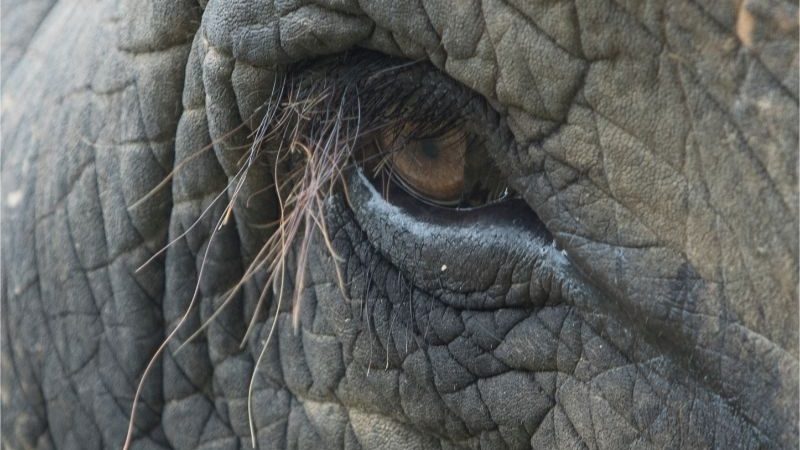
Jokia means ‘eye from heaven’.
Listening to Tong tell the elephant’s outrageously tragic stories created an emotional avalanche inside me – tears gushed like waterfalls, my body shook with anger, words choked my throat. How could I not know this cruelty happened? Is still happening. I felt naïve, confused, helpless. How could I not know that before an elephant is trained to do anything for humans, its spirit is broken – put in a cage called a ‘crush’ and tormented physically and emotionally until it succumbs. How could I not know that illegal poaching is still rife? That baby elephants are plucked from their herd and the mother (and sometimes aunties) need to be killed because they’ll stop at nothing to to protect their family? How could I not know?
RELATED: “I RODE AN ELEPHANT”: A CONFESSION FROM INTREPID’S CEO
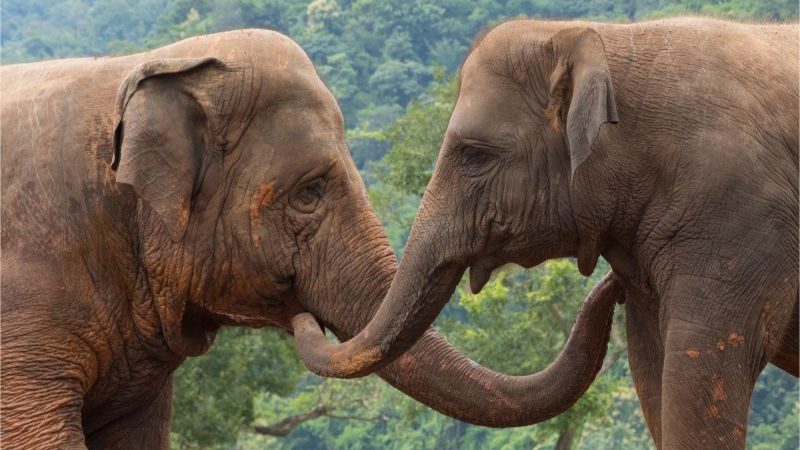
Besties.
I wanted to run back to the road where we saw tourists atop elephants and plead with them to get off – to tell them the ugly truth behind why elephants tolerate people riding on their backs. I wanted to shout from the treetops that unless the demand stops for ele-tainment activities – like painting pictures, kicking soccer balls, riding bikes, playing music – the cycle will keep spinning.
But instead, I slowly let the sense of enlightenment envelop me. I started to feel the positive energy of the majestic creatures who have endured so much, and are now in their ‘forever’ home.
RELATED: HOW WE CHANGED THE ELEPHANT RIDING INDUSTRY
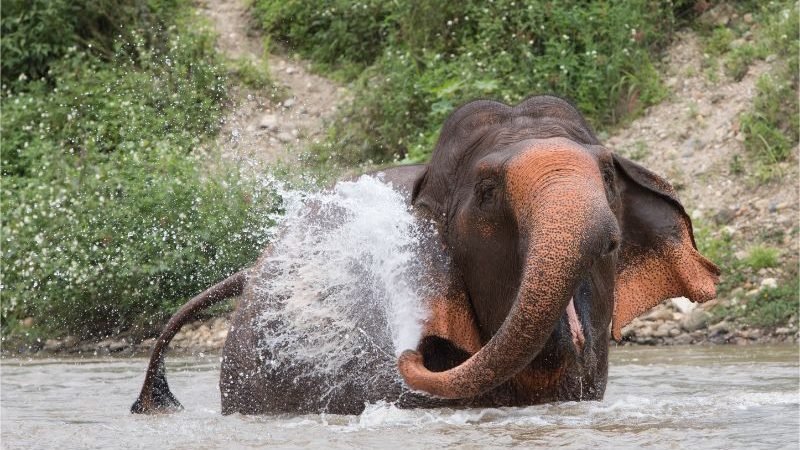
Elephants don’t need people to help them bathe.
Founded in the 1990s by ‘elephant whisperer’ Lek Chailert, Elephant Nature Park is one of the leading lights of a sanctuary for rescued elephants. Her work has been honoured by Time magazine, Hillary Clinton, and the Ford Foundation, and has featured in numerous documentaries and articles. Although I didn’t meet Lek, I heard her working in the distance with a recent arrival. Tong said that when the elephants first arrive “They often stand like zombies or are aggressive.” As Lek was trying to calm the elephant down, other elephants were trumpeting with gusto. “They do that,” he said. “They’re telling the new elephant that she’s now safe, that no one will ever hurt her again.”
READ MORE ABOUT INTREPID’S STANCE ON ANIMAL WELFARE HERE
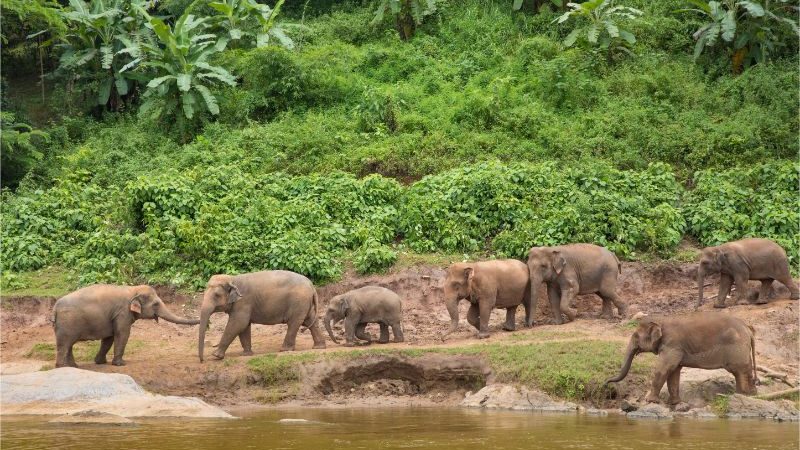
An afternoon stroll to the river.
All the elephants have been rescued from abusive situations. Lek and her staff rely on intel from local villagers, and then set about purchasing the elephant through donations and volunteer work.
Tong explained how the niche market in tourism began in Thailand after logging was officially banned in 1989. Elephants and their mahouts were out of a job. “Elephants cost a lot to feed and they didn’t have anywhere to go because there’s not enough forest left.” I wondered if, as the elephants were hauling the logs, they realised they were destroying their own habitat. A cruel twist of irony.
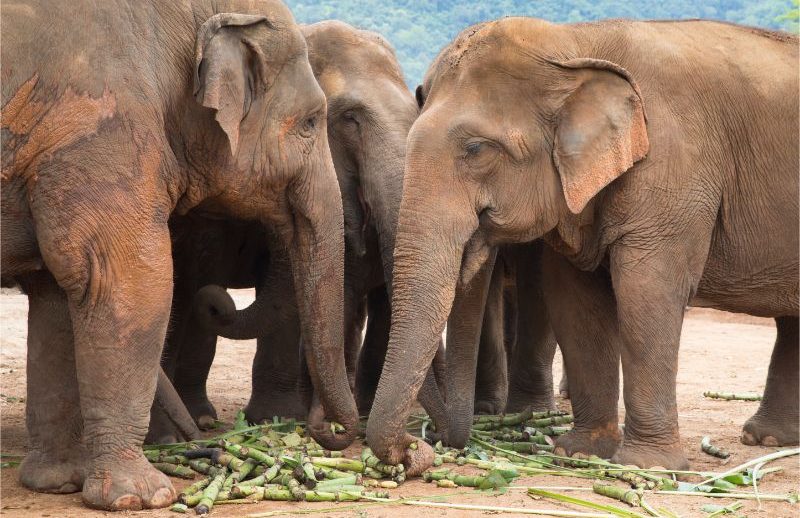
Lunch party!
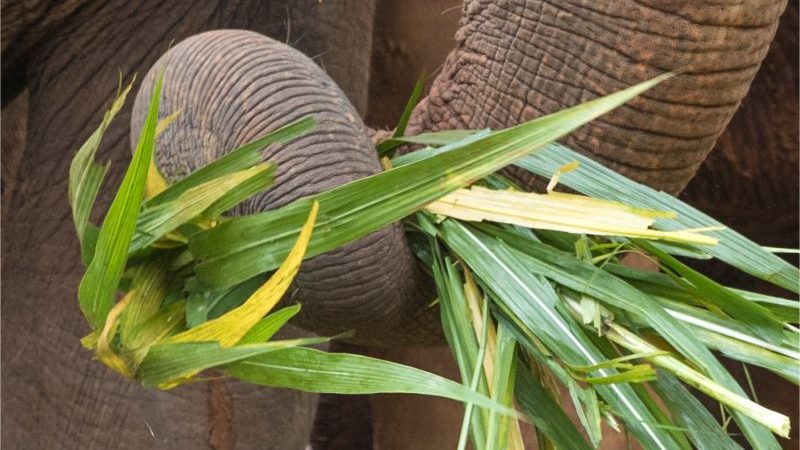
Elephants need to eat around 8% of their body weight every day
Led by Tong, we walked amongst the gentle giants while the mahouts gently guided the elephants into the different areas of the park. Some bathed in the river, others played in the mud, stroked each other with their trunks, sprayed water over their bodies, rummaged for food, quietly stood in the shade, scratched their rumps on trees or simply wandered.
SUBSCRIBE TO INTREPID’S NEWSLETTER FOR TRAVEL STORIES, COMPETITIONS & MORE
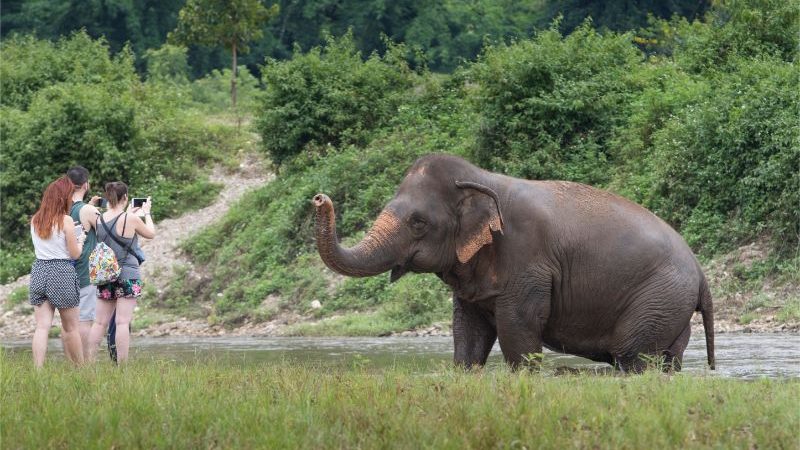
Ethical tourism at its best.
Elephant tourism in Thailand is in a transitional phase – Intrepid was the first global travel company to ban elephant rides from itineraries and thankfully many more companies have now followed. Elephant Nature Park continues to strive to create a business model that engages tourists without interactive experiences. In 2018 they phased out bathing the elephants and by 2020 there’ll be no more hand feeding. “The more elephants do by themselves, the more they’re living naturally,” said Tong.
And what could be more uplifting than seeing elephants just being elephants?
Meet these incredible creatures at Elephant Nature Park on our 3-day Chiang Mai & Elephants Short Break. Full details here.
All photos by Jocelyn Pride.

